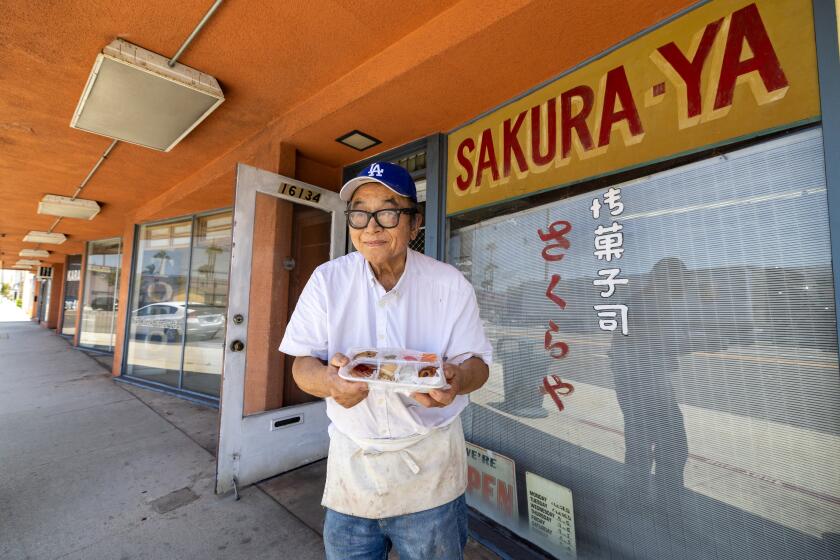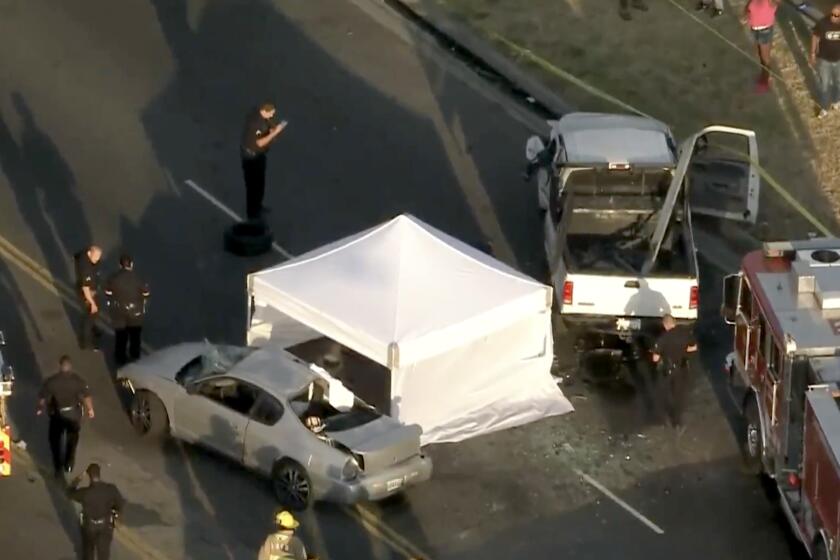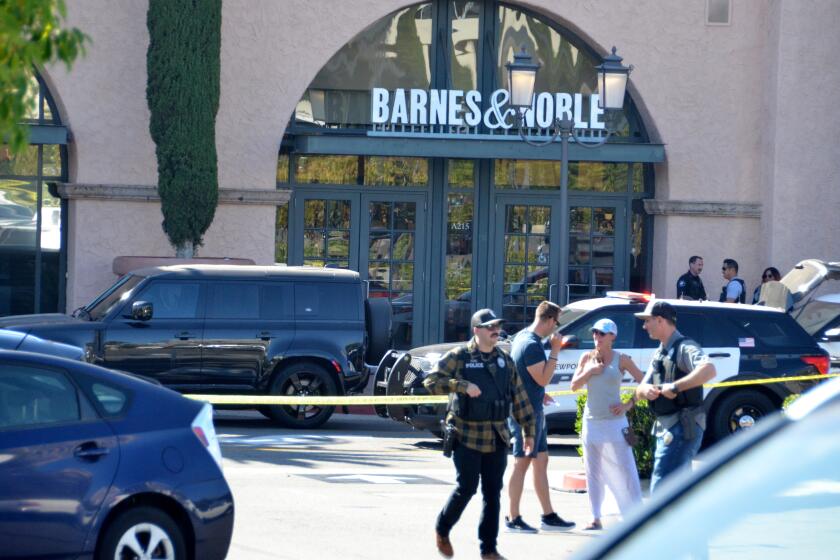Shocking allegations around S.F. rape-exam DNA highlight issue of privacy vs. justice

Good morning, and welcome to the Essential California newsletter. It’s Wednesday, Feb. 16. I’m Justin Ray.
A jaw-dropping allegation involving rape kits in San Francisco is causing uproar.
Dist. Atty. Chesa Boudin said this week that police used a database with DNA collected from victims of rape and sexual assault to link them to crimes. Calling the practice “legally and ethically wrong,” he called for an immediate end to the alleged practice.
The district attorney pointed out that the alleged practice would disincentivize victims from reporting crimes, allowing would-be offenders to act without legal consequences.
“I am disturbed that victims who have the courage to undergo an invasive examination to help identify their perpetrators are being treated like criminals rather than supported as crime victims,” Boudin said. “We should encourage survivors to come forward — not collect evidence to use against them in the future. This practice treats victims like evidence, not human beings.”
Boudin didn’t specify which database was used, but said a woman was recently arrested on suspicion of a felony property crime based on her DNA collected years ago during a domestic violence-involved rape examination, according to the Associated Press.
Is it legal for the police to do this? The Times looked into it. The short answer is: No.
DNA evidence and privacy
Thanks to TV shows featuring forensic evidence and the greater true crime genre, pretty much everyone is familiar with DNA and how it’s used in investigations. As technology develops, more and more questions arise about how much privacy we’re willing to lose in the name of justice.
Not too long ago, the Golden State Killer — one of the most notorious criminals in the state who seemed to always evade justice — was caught through genetic technology.
But, as we uncovered in a major investigation into the case, catching the former police officer involved covert searches of private DNA.
That case, and the San Francisco allegations, highlight the lack of transparency and regulations over DNA searches.
“Genealogical databases are a potential gold mine for police detectives trying to solve difficult cases. But law enforcement has plunged into this new world with little to no rules or oversight, intense secrecy and by forming unusual alliances with private companies,” Paige St. John wrote for The Times.
Related:
- An Inglewood teacher was arrested on suspicion of murdering a 21-year-old woman in 2005 after DNA and fingerprint evidence allegedly linked him to the killing, authorities said Saturday. However, the suspect in the case denied involvement in the crime in a phone call with The Times, and offered an explanation for the presence of his DNA being linked to the crime.
- Forensic science’s shortcomings have left the justice system alternately in a quiet panic or massive denial. “Welcome to the real world of forensics, where the wizardry lionized by the ‘CSI’ television empire turns out to have serious flaws,” Edward Humes writes.
And now, here’s what’s happening across California:
Note: Some of the sites we link to may limit the number of stories you can access without subscribing.
California’s universal indoor mask mandate expired at midnight, but that doesn’t mean you should throw away all your masks. Even if you’re up to date with your COVID-19 vaccinations, there are still lots of places where you’ll need to cover your nose and mouth. Almost everyone throughout the state — vaccinated or not — will still have to wear a mask in certain scenarios. Los Angeles Times
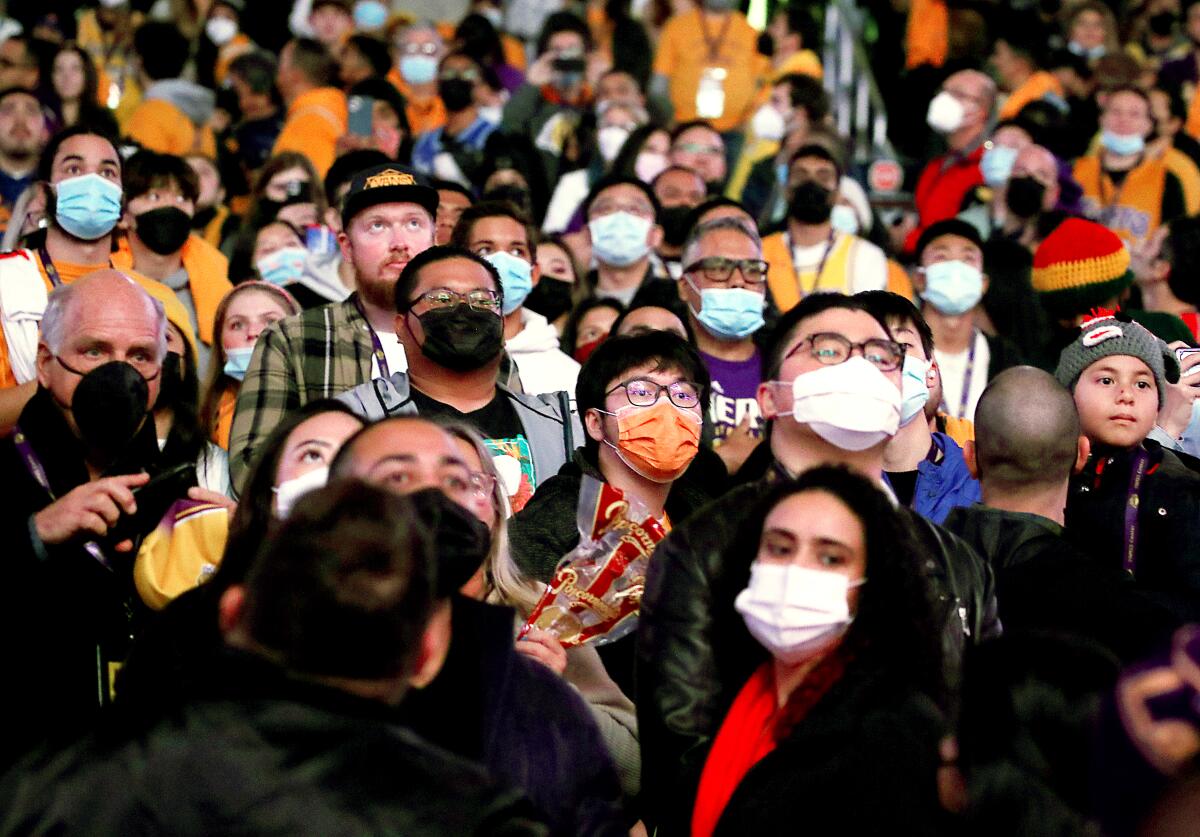
L.A. STORIES
An actor who admitted fabricating HBO and Netflix film deals in a $650-million Ponzi scheme that prosecutors say is the biggest in Hollywood history was sentenced Monday to 20 years in prison. Zachary Horwitz, 35, was also ordered by U.S. District Judge Mark C. Scarsi to pay $230 million in restitution to more than 250 victims, including some who were financially ruined in what prosecutors called a crime of “staggering magnitude.” Los Angeles Times
The family of slain “Rust” cinematographer Halyna Hutchins filed a wrongful death lawsuit against Alec Baldwin and other film producers Tuesday, blaming the tragedy on cost-cutting measures and reckless behavior by Baldwin and others. The Los Angeles-based law firm of Panish Shea Boyle Ravipudi, which specializes in personal injury and wrongful-death claims, held a press conference in which an animated video reconstructing the shooting was played. Los Angeles Times
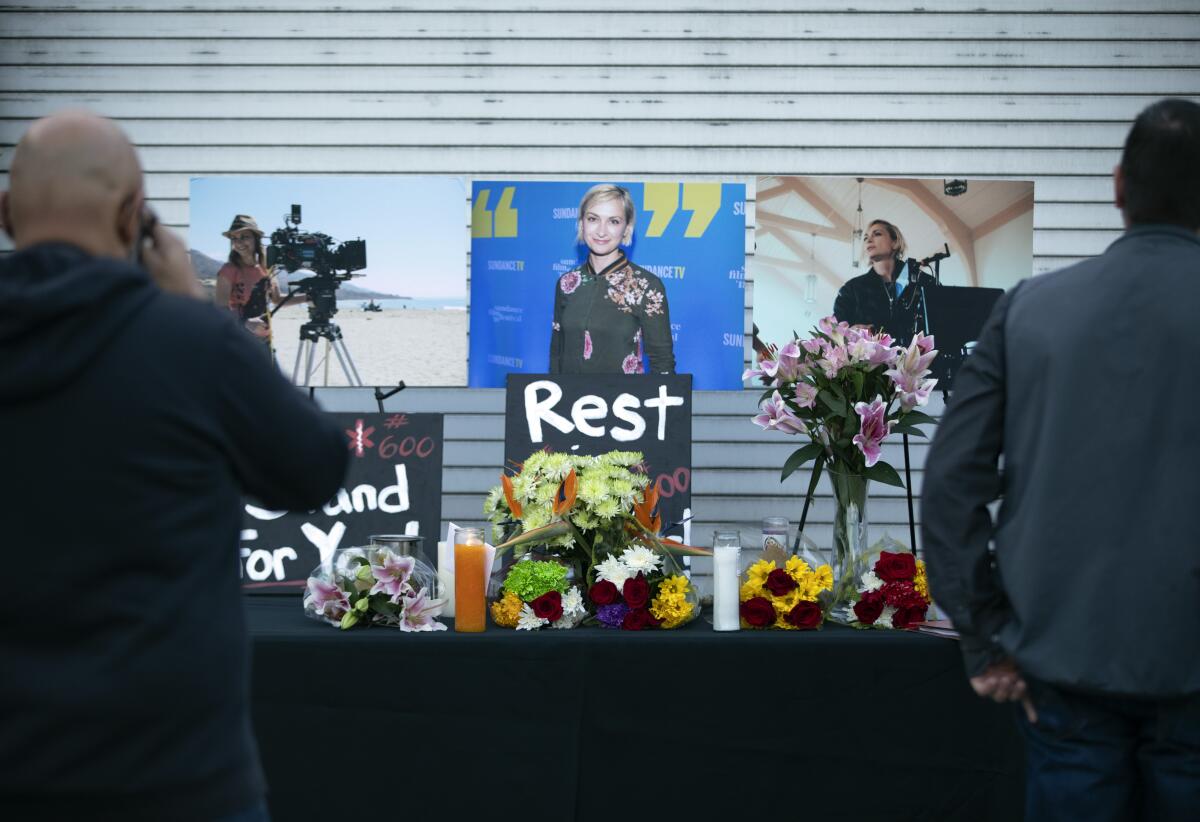
Our daily news podcast
If you’re a fan of this newsletter, you’ll love our daily podcast “The Times,” hosted every weekday by columnist Gustavo Arellano, along with reporters from across our newsroom. Go beyond the headlines. Download and listen on our App, subscribe on Apple Podcasts and follow on Spotify.
POLITICS AND GOVERNMENT
Less than five months after Californians overwhelmingly rejected a recall effort against Gov. Gavin Newsom, voters expressed disapproval with the governor. A solid majority believe the state is headed in the wrong direction, according to a new UC Berkeley Institute of Governmental Studies poll co-sponsored by the Los Angeles Times. Los Angeles Times
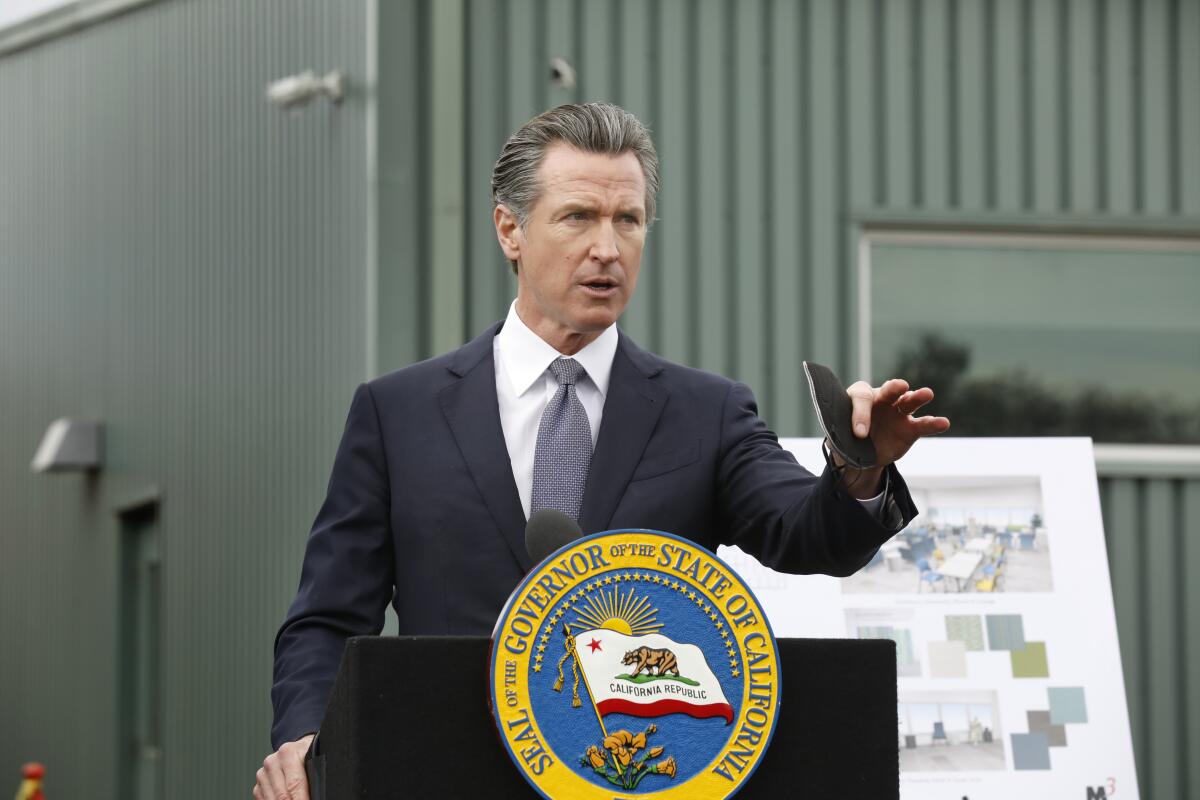
CRIME, COURTS AND POLICING
Authorities have identified the 18-year-old victim of a shooting at a North Fresno bowling alley. Devin Johnson was killed in the entryway. Police determined a late-night shooting was gang related and called it an isolated incident. There still have not been any suspects identified in the crime. Fresno Bee
California prison officials said an inmate is missing after walking away from a Bakersfield community reentry program. Dylan Warren, 26, disappeared on Feb. 13. He was discovered missing just before 6:30 p.m. He is described as 6 feet, 2 inches tall, weighing 209 pounds, with brown hair and hazel eyes. He was wearing a black jacket, dark pants, black shoes with white soles and a gray beanie. He was serving a sentence for burglary. KGET
Support our journalism
HEALTH AND THE ENVIRONMENT
Climate crisis and systemic inequities drive push to reform California water laws. California’s mountain snowpack is shrinking, and climate change is intensifying the severe drought. Streams have dwindled and reservoirs have declined as vast quantities of water are diverted for farms and cities. A group of prominent legal experts has presented a blueprint for updating California’s system of water laws to fix long-standing weaknesses and adapt to the worsening effects of climate change. Los Angeles Times
CALIFORNIA CULTURE
California has the second-highest life expectancy in the U.S. Data analyzed by the National Center for Health Statistics show that California has a life expectancy of 80.9. Mississippi was lowest at 74.4 years. While the report was released Thursday, it uses data collected in 2019, and therefore does not reflect any changes in life expectancy that may have occurred during the coronavirus pandemic. KTLA
Right-wing pundit Candace Owens loved the Super Bowl halftime show. Her followers were not happy. The Times dug into the responses from right-wing commentators who had strong words for the NFL and the performers. The Times also discussed the Republican anger at the league. Los Angeles Times
The Hollywood sign will look a little different this week, following the Los Angeles Rams’ Super Bowl win over the Cincinnati Bengals at SoFi Stadium on Sunday. Los Angeles Times
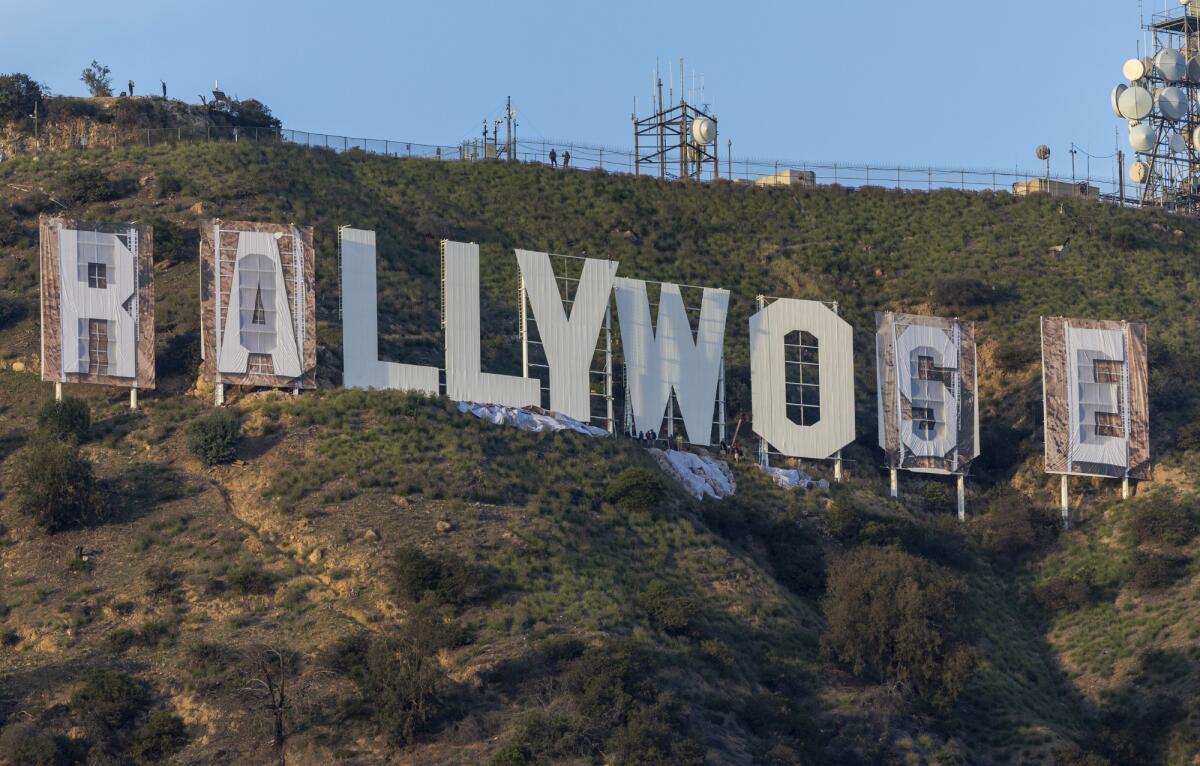
Free online games
Get our free daily crossword puzzle, sudoku, word search and arcade games in our new game center at latimes.com/games.
CALIFORNIA ALMANAC
Los Angeles: Sunny 67 San Diego: Sunny 65 San Francisco: Sunny 65 San Jose: 70 Sunny Fresno: Sunny 65 Sacramento: Sunny 71. Maow.
AND FINALLY
Today’s California memory is from Ann C. Hayman:
I grew up in Los Angeles in the 1950s/early 1960s. In those days, you attended the local public elementary school with the other children on your block. They became your playmates and friends. There was no such thing as an arranged “play date.” In the summer, during daylight savings time, we could hardly wait to finish our dinner so we could go out and play unaccompanied with our neighborhood friends. My mother did not worry about where we were and what we were doing. She just told us to be home when it got dark. What a sense of freedom we children had!
If you have a memory or story about the Golden State, share it with us. (Please keep your story to 100 words.)
Please let us know what we can do to make this newsletter more useful to you. Send comments to essentialcalifornia@latimes.com.
Start your day right
Sign up for Essential California for news, features and recommendations from the L.A. Times and beyond in your inbox six days a week.
You may occasionally receive promotional content from the Los Angeles Times.


